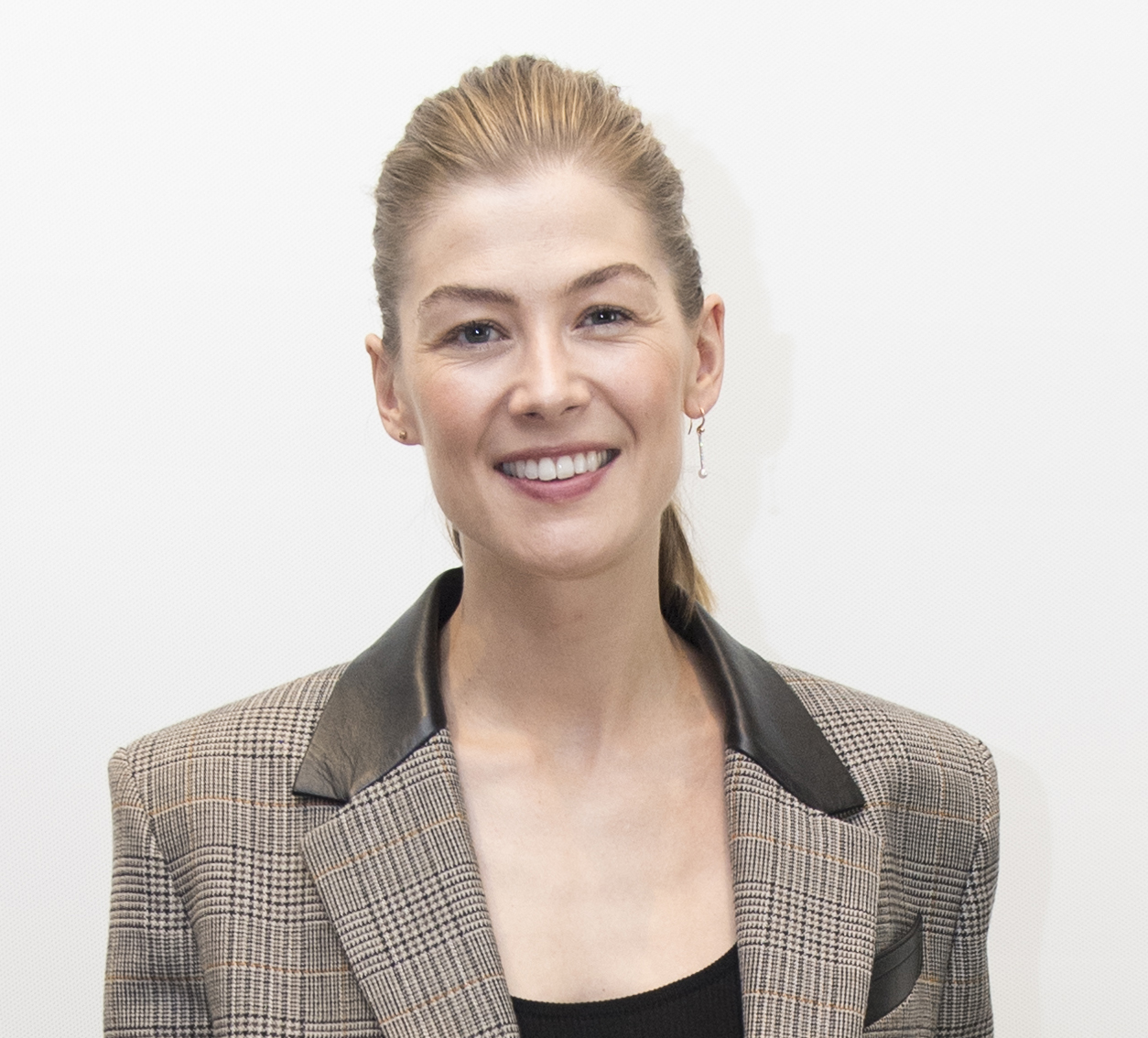
- Golden Globe Awards
Rosamund Pike
Anger informs conflict, and of course, conflict drives narrative. But female expressions of sustained anger, as well as honest portrayals of the righteousness of moral indignation, are both heavily under-explored in cinema, for reasons likely both related to degree-of-difficulty and, it must be said, outmoded notions of what constitutes interesting parts for women or what audiences want to see.A highly concentrated and educated anger figures prominently into Rosamund Pike’s fine work in A Private War, for which she is nominated for Best Actress in a Motion Picture – Drama. “There’s a fire that’s lit by feeling that there’s a lie being perpetrated and that the world is not seeing the truth,” notes Pike, previously nominated for a Golden Globe in 2015 for her performance in David Fincher’s Gone Girl. “So I think sometimes anger can help you find your truth.”Consider it well located. Shot with an absorbing immediacy – courtesy of both cinematographer Robert Richardson’s vérité-style work and director Matthew Heineman’s award-winning background in nonfiction filmmaking – A Private War tells the true story of American-born journalist Marie Colvin, who for a period spanning four decades braved combat zones as a foreign affairs correspondent for The Sunday Times, and died covering the siege of Homs in Syria, targeted by the regime of Bashar al-Assad for her truth-telling to the international community.For A Private War, Pike undertook a level of experiential research unlike efforts for any of her other movies. One month before shooting, she traveled to Lebanon with a nonprofit group working to remove landmines from the country, journeying into such restricted and dangerous areas that she had to sign a proof-of-life form and submit handwriting samples in case she was kidnapped. Pike admits she was terrified but stresses that the experience was worth it.“I think more than any film I’ve done, this was an exercise in getting myself out of the way of it,” she says. “More than any other part I’ve played, I felt that my own brain was free, really, and that I had managed to get myself into a place of embodying somebody where her thoughts were my thoughts, where I was processing events as her. And it was an exciting and very different feeling. I felt that I was a channel, a real channel, for somebody who I feel tremendously intimate with, but will never meet.”While Colvin’s personal story has a painful ending and also many other tragic elements scattered throughout, there is an edifying and even uplifting side in bearing witness to and honoring her unflagging passion, and that aforementioned righteous anger, Pike asserts. “I think Marie did have an addictive personality. I mean, there’s no hiding from that. (But) there’s also a way that her life made sense to her when she was in a war zone,” says Pike. “There was a way that suddenly it was pared down to something that really mattered, and she could see what the stakes were when she was at work. She felt that her life mattered and her job had purpose.”In an era of much-manufactured outrage, but also people counseling against public expressions of such emotion, Pike’s performance and this film are an important reminder of the value and even perhaps duty of genuine anger.

